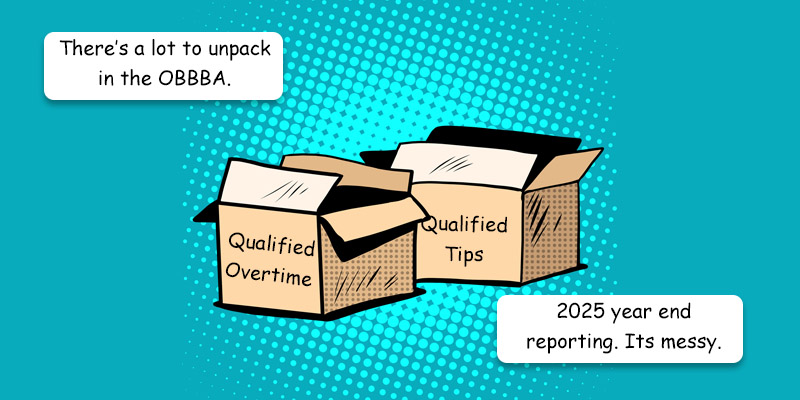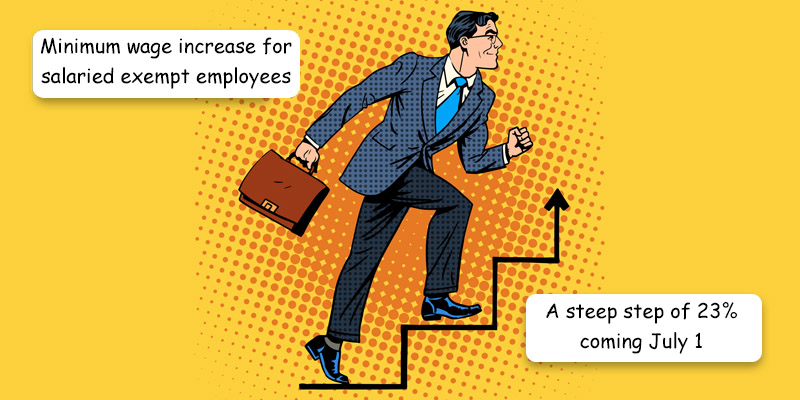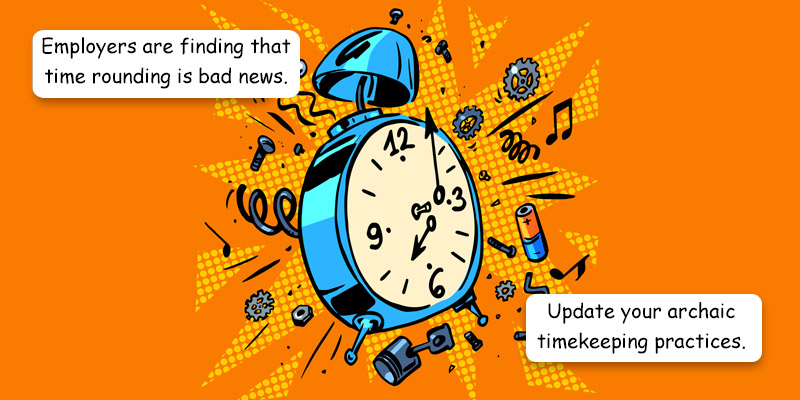Restaurants face special rules for payroll, wages and tips that set them apart from most other businesses. In few industries do customers directly help pay employee wages through tips. These rules come mainly from the federal Fair Labor Standards Act (FLSA) and state laws, and can lead to common compliance issues, if not handled carefully. Minimum wage – While the federal minimum wage is $7.25 per hour, for tipped employees who engage in an occupation in which they customarily and regularly receive more than $30 per month in tips, their minimum wage is only $2.13 per hour in direct wages,…
Posts tagged as “FLSA”
The Federal minimum wage has remained at $7.25 per hour since 2009, but 24 states and many cities, counties and locals have set increases effective January 1st, 2026, and a few effective during 2026. The state with the highest minimum wage is D.C. (yes, I know D.C. is not a state, but in any payroll system, D.C. is selected in the state field) at $17.95 an hour, and a number of cities within Washington state are well above $20.00 per hour. Back in the “old days” of 2012, we heard of the “Fight for $15.00” movement, and looking at the…
As discussed in our earlier blog post here, the One Big Beautiful Bill Act (OBBBA) allows for a provision of “no tax” on tips and overtime. This has turned out to be a bit of a mess, as it pertains to 2025 reporting to the employees, due to insufficient time for the Social Security Administration and the IRS to make the changes to their forms to account for it. Not to mention many payroll systems were not prepared for this brand new retroactive reporting, especially as it pertains to qualified overtime. With that being said, 2025 will be treated as…
On Independence Day, 2025, President Trump signed into law the One Big Beautiful Bill Act. This 330-page act covers a great deal, most of which will not be discussed in this article, but since it does have an impact on the payroll world, I will review pertinent items including the no tax on tips and overtime provision and the retroactive change to the Employee Retention Tax Credit. Employee Retention Tax Credit For ERTC, there will be no credit allowed for claims involving the 3rd and 4th quarter 2021, filed after January 31, 2024. This is somewhat good news, as Congress…
Compensatory time, or “comp time,” is an alternative to overtime pay where employees receive paid time off instead of extra wages for overtime hours worked. But, not so fast. While this may seem like a useful tool for managing labor costs and scheduling, its legality depends on the type of business and the classification of employees. Employers must understand the rules before offering comp time to avoid legal issues. The legality of comp time depends on whether an employer operates in the public or private sector: Public-Sector Employers: Under certain prescribed conditions, employees of state and local government agencies are…
While there are regular updates to the minimum wage for hourly employees, at least on the state level, changes to the minimum salary for Fair Labor Standards Act (FLSA) exempt employees are not as common. Looking back twenty years ago to 2004, the minimum weekly salary for a FLSA exempt employee was only $445. In 2016, President Obama attempted to double that weekly amount to $913, but a federal judge blocked it just days before it was to take effect. It was ultimately increased to $684, effective January 1, 2020, where it currently stands. As of July 1, 2024, the…
Time rounding. A practice that once had a purpose, should go the way of the dinosaurs. Back in the caveman days, when an employee stuck their timecard in a dinosaur’s mouth to punch in and out, payroll administrators needed a quick way to total hours. The fastest way to do that was to round punches; Looking at a shift and seeing 9:06 a.m. to 5:03 p.m. or 8:55 a.m. to 5:07 p.m. and calling them both as eight-hour days. With modern technology, that is no longer the case. Automated timekeeping systems are able to calculate punches to the minute without…
There are two questions that are brought up when talking about the topic of whether to deduct credit card processing fees before paying out charge tips to your employees. Can you do it, and should you do it? Credit card processing fees can be a significant expense to any business. In 2022, the average credit card processing fee ranged between 1.5% and 3.5% of the sale. There are a number of businesses that charge the consumer a convenience fee when paying by card over cash to cover this added expense, but that practice has not caught on for restaurants. At…
Overtime. It is a subject that you may think you know well, but do you? It is not always a simple matter of paying the employee “time and a half” for any hours worked in excess of 40 hours in a workweek. There is much more to take into consideration, and while this article is not intended to cover every scenario out there, we will touch a number of bases. What we will not cover, this time around, is who may be exempt from overtime. Let’s start with the federal law, where the overtime provisions are contained in the Fair…
While the Federal minimum wage remains at $7.25 per hour, 27 states and many cities, counties and locals have set increases effective January 1st, 2022 with a few announcing a change during 2022. Many states continue their path to $15.00 per hour and you will now find places in Washington state that have a minimum wage over $17.00 per hour. A list of each state/local, along with the new hourly rate is listed below. Any state that does not have a minimum wage change scheduled is not listed. All rates are effective January 1st, 2022 unless otherwise noted. Alaska: $10.34 Arizona: $12.80…










